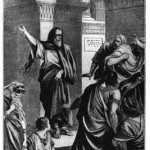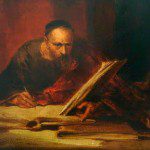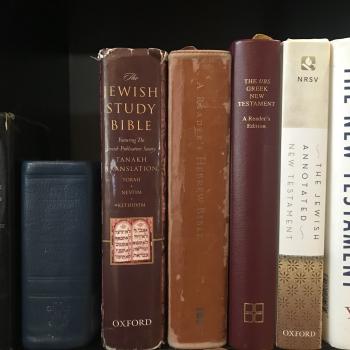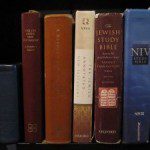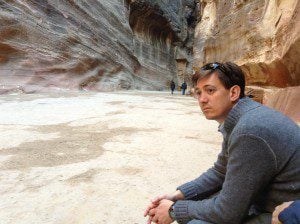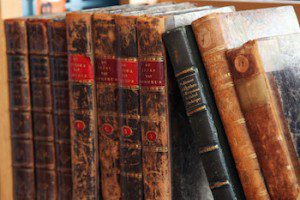
One of my qualifying exams is in Reformation history. As the story goes, Oct 31 is the day Martin Luther nailed his 99 95 theses to the door of the church, so Oct 31 is sometimes known as Reformation Day. What many people don’t know is that a) this story doesn’t mean what people think it does and b) it might not even have happened.
University professors, as Luther was, operated differently from today. A primary form of teaching and scholarship was the Disputation, which required publicly laying out a series of theses pointing towards a yes/no conclusion. The way you announced these Disputations was to put up a paper copy on the church door; In other words, the nailing to the door is the equivalent of sending out an email announcement of a lecture, not a deliberate frontal assault on Catholicism as it is sometimes portrayed.
And so, I’m posting some books from my Reformation exam reading list (still a bit in flux) that I think are accessible. Some of these are not strictly on my list; due to circumstance, I had limited coursework in this area, so some of my readings are a little more general and introductory. Also, most of the list below is still to-read for me.
General/Overview
- Marshall, The Reformation: A Very Short Introduction
- Diarmid MacCulloch, The Reformation: A History (Penguin Books, 2005)
- A lengthy comprehensive overview of the Reformation from 1490 through the 1700s.
- Euan Cameron, European Reformation 2nd ed. (Oxford, 2012)
- A history of the early 16th century reformations, including social and intellectual history, through a Weberian lens.
People of the Reformation and Their Ideas
- F.Bruce Gordon, Calvin (Yale University Press, 2011)
- A well-reviewed biography of Jean Calvin with a focus on “following the events of his life and charting his thoughts through his letters and writings.”
- Brad Gregory, Rebel in the Ranks: Martin Luther, the Reformation, and the Conflicts That Continue to Shape Our World (HarperOne, 2017)
- An intellectual biography of Luther tracing the impact of his ideas after his death and into the current period.
- Craig Harline, A World Ablaze: The Rise of Martin Luther and the Birth of the Reformation (Oxford, 2017)
- A lively biography of Martin Luther by a (BYU!) specialist not on Luther himself, but on history of religion and the early modern period.
- Harline’s podcast with the Maxwell Institute
- Kristi Stjerna, Women and the Reformation (Wiley-Blackwell, 2008)
- Stjerna provides both a social context for women before, during, and after the Reformation, as well as biographical sketches and case studies of particular women.
Primary Sources
- John Calvin, Institutes of the Christian Religion (This is quite long, and exists in multiple editions and translations.)
- I’m using the version edited by John T. McNeill (Westminster John Knox Press, 1960)
- Supplemented with Anthony N.S. Lane, A Reader’s Guide to Calvin’s Institutes (Baker Academic, 2009)
- Erasmus, “On the Freedom of the Will”
- A written debate with Luther carried on in print, 1524-25.
- I have not settled on a particular translation yet, and will probably consult several.
- Martin Luther, “On the Bondage of the Will,” “To Christian Nobility,” “The Babylonian Captivity of the Church,” “Freedom of a Christian.”
- I’m using the English versions found in The Annoted Luther series, (Fortress Press, 2015) which comes with helpful contextual annotations.
Reformation, Science, and Biblical Interpretation
- Peter Harrison, “Protestantism and the Making of Modern Science” in Protestantism after 500 Years, Mark A. Knoll and Thomas Albert Howard, eds. (Oxford Press, 2016), 98-120.
- Harrison argues against a simplistic “single narrative” of “science and religion,” and summarizes some current views of how Protestant ideas contributed to the rise of modern science.
- Peter Harrison, The Fall of Man and the Foundations of Science (Cambridge University Press, 2009)
- Harrison argues that the Reformers’ view of human depravity and the “Fall of Man” led to a strong distrust of the human mind, which contributed to the rise of external, experimental, empirical “science.”
Reformation and Continuity
- Alister E. McGrath, Intellectual Origins of the European Reformation, 2nd ed. (Wiley-Blackwell, 2003)
- Argues for an intellectual continuity between the Renaissance, humanism, scholasticism, and the early Reformation. Includes a section on scriptural interpretation and hermeneutics.
- Bard Thompson, Humanists and Reformers: A History of the Renaissance and Reformation (Eerdmans, 1996)
- Split between the Renaissance and Reformation, Thompson discusses the religious, civil, and intellectual developments of the two periods, complete with 212 images and illustrations.
- Brad Gregory, Unintended Reformation: How a Religious Revolution Secularized Society (Belknap Press/Harvard University Press, 2015)
- Gregory argues that the ideas promulgated by the Reformers contributed materially to some aspects of modern society, including religious plurality and consumerism.
- McGrath Christianity’s Dangerous Idea: The Protestant Revolution–A History from the Sixteenth Century to the Twenty-First (HarperOne, 2008)
- McGrath offers a history of Protestantism with a focus on the role and impact of the Reformers’ views of scripture and interpretation, particularly sola scriptura.
I’ve also been listening to two Great Courses series, also available over Audible.
- Brad Gregory, History of Christianity in the Reformation Era
- Gregory was also interviewed for the Maxwell Institute podcast
- Phillip Cary, Luther: Gospel, Law, and Reformation
And if you know nothing, the film Luther has high production values and features Joseph Fiennes as Luther. It’s a little bit one-sided, as it’s sponsored by a Lutheran group, but definitely worth watching.
As always, you can help me pay my tuition here. You can also get updates by email whenever a post goes up (subscription box on the right). You can also follow Benjamin the Scribe on Facebook.


